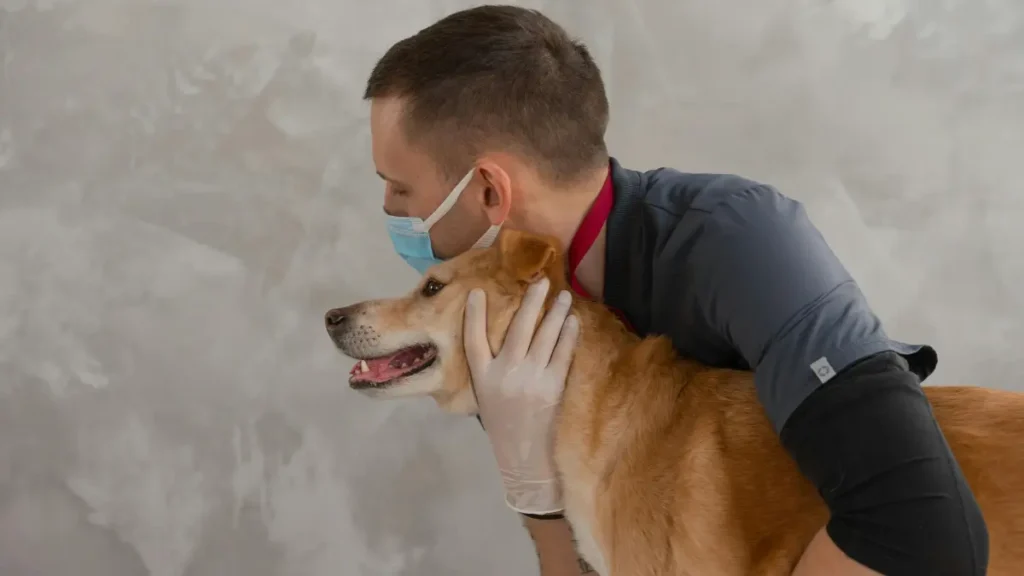Dogs are our loyal companions, and hearing them cough can be a source of worry. Why is my dog coughing? This question often leads to a search for answers ranging from simple irritations to serious health issues. Understanding the reasons behind your dog’s cough and knowing when to seek professional help is crucial. This guide explores the common causes, symptoms, and treatments for dog coughing, tailored for dog owners in 2025.
Table of Contents
Understanding Dog Coughing
Coughing in dogs serves as a natural reflex to clear their airways from irritants like dust or mucus. However, when you notice your dog coughing and hacking, it might indicate an underlying health problem. Here’s what might be causing your pet to cough:
Common Causes of Dog Coughing in 2025
Kennel Cough
Kennel cough, or infectious tracheobronchitis, remains prevalent in social dog settings.
- Symptoms: Look for a dry, hacking cough that sounds like something is stuck in their throat. This can be particularly distressing if you’re wondering, why does my dog keep coughing and gagging?
- Treatment: While many cases resolve naturally, antibiotics might be needed for secondary infections. Using a humidifier or steam can help soothe the airways.

Heart Disease
Heart disease can lead to coughing due to fluid buildup.
- Symptoms: A soft, persistent cough, particularly when your dog is at rest.
- Treatment: Medications are key to manage the heart condition.
Tracheal Collapse
Common in small breeds where the tracheal rings weaken.
- Symptoms: A honking cough, which might make you ask, why is my dog coughing?
- Treatment: Includes cough suppressants, weight control, and sometimes surgery.
Allergies
Environmental changes might increase allergy-related coughing.
- Symptoms: Continuous coughing, sneezing, itchy skin, or watery eyes.
- Treatment: Antihistamines or environmental adjustments can help.
Heartworm Disease
Heartworm cases persist, particularly in mosquito-rich areas.
- Symptoms: A dry, persistent cough, fatigue, and loss of appetite.
- Treatment: Prevention is ideal; treatment for infection is complex.
Pneumonia
A concern with emerging pathogens.
- Symptoms: Wet cough, fever, lethargy, and not eating.
- Treatment: Requires veterinary antibiotics, fluids, and supportive care.

Chronic Bronchitis
Common in older dogs.
- Symptoms: Ongoing dry cough.
- Treatment: Long-term management with medication.
Foreign Objects
Curiosity can lead to airway blockages.
- Symptoms: If you notice your dog constantly coughing up treats, this might be due to eating too quickly or treats being too large. Sudden, violent coughing, or gagging could indicate something stuck.
- Action: Immediate vet visit for removal is crucial.
Types of Dog Coughs and Their Meanings
- Deep and Dry: Often related to allergies or bronchitis.
- Honking Cough: Suggests tracheal issues.
- Wet and Phlegmy: Indicates pneumonia or lung fluid.
- High-Pitched Gagging: Might mean a foreign body or airway irritation, closely associated with dog coughing and gagging, which can sometimes occur if dogs eat inappropriate items like chicken legs.
Listening closely to the cough can help diagnose the problem.

When to Visit the Vet
Seek veterinary care if:
- The cough lasts over a week, especially if you’re asking, why does my dog keep coughing and gagging?
- There’s blood or frothy liquid with the cough.
- Symptoms like fever, lethargy, or appetite loss accompany the cough.
- Breathing difficulties are observed.
At-Home Remedies for Mild Coughs
For minor irritations:
- Humidifier Use: To maintain airway moisture.
- Steam Therapy: A steamy bathroom can help.
- Hydration: Ensure your dog drinks plenty of water.
However, these are not replacements for vet visits if symptoms persist.

Preventing Dog Coughing in 2025
Prevention strategies:
- Vaccinations: Essential for diseases like kennel cough.
- Heartworm Prevention: Regular treatments are crucial.
- Clean Environment: Minimize allergens and dust.
- Regular Vet Visits: Catch issues early.
Call to Action
Concerned about your dog’s cough? Visit your vet. Stay proactive with health checks and preventive care to keep your dog vibrant. Share this guide to help educate other dog owners on managing and preventing dog coughing.
By understanding why your dog coughs, you take a significant step towards ensuring their health. Recognizing symptoms, knowing when to intervene, and consulting professionals promptly can lead to a better quality of life for your pet.
For additional ways to support your dog’s well-being, check out our range of dog accessories and products.





